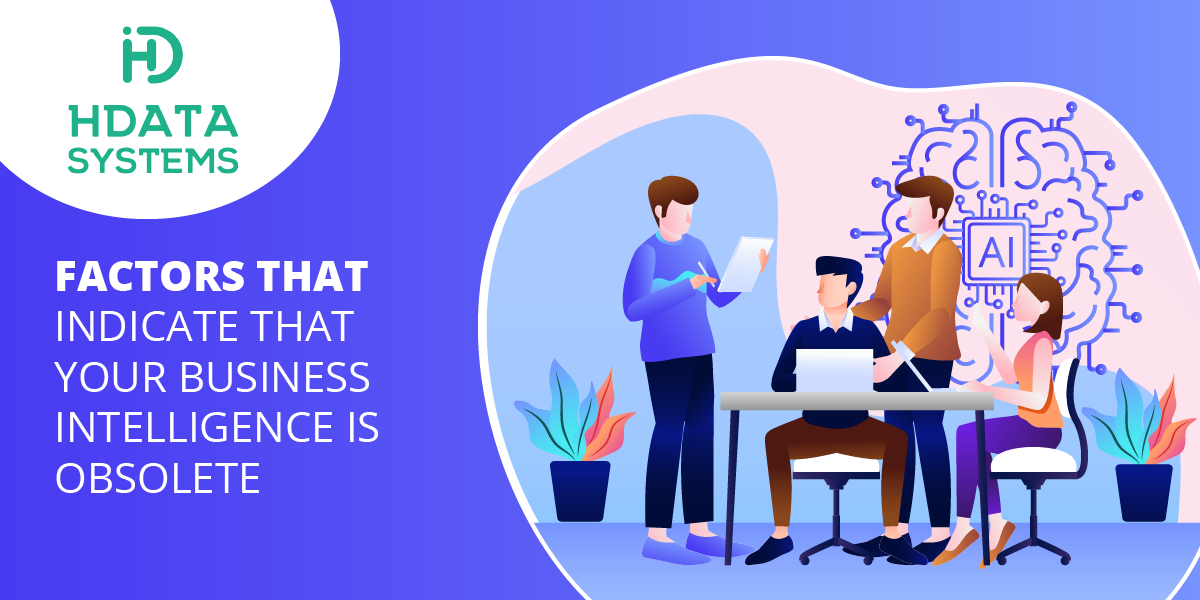We live in the data age, and information management in companies has never been so important as an asset for improving competitiveness and performance. Information today is power, and Business Intelligence (BI) is already almost a kind of cornerstone with which to obtain greater results from
Big Data and Business Analytics. BI is the element that allows better decisions to be made based on a set of methodologies, applications, practices, and capacities focused on the creation and administration of information.
Since its appearance in the 70s, linked to management information systems, the BI has undergone a great evolution in both techniques and applications. Its ultimate goal is the transformation of data into information, leading to concrete actions that create a competitive advantage. However, technology is changing faster than companies get to assimilate, and it is increasingly common to find tools that soon become obsolete. The trends in BI today point in several directions that indicate a very different horizon for these types of solutions:
- Multi-cloud, hybrid, and peripheral models.
- Protagonism of Artificial Intelligence
- Visualization and conversation technologies in full fusion
- Use of External Data
- One view of all data
These are just some of the points that make up the so-called postmodern analytics, where the performance and scalability of the solutions continue to take center stage. But also the need to have more and more simplification to make life easier for users, making it possible to create, edit, and filter information more easily.
Do it yourself: The present of Business Intelligence
One of the signs that should make you think that your BI is obsolete is precisely to continue to depend on humans for the information to be operational.
If you cannot share knowledge with third parties in an automated way throughout the company or, for example, you have difficulties accessing information on any device or the search for data is complicated by interfaces that need data experts, the effectiveness of the information will be very limited.
Facilitating access to databases and allowing them to be shared in a secure framework is essential. The ''do it yourself'' concept also plays an important role in
Business Intelligence. A tool that places limitations on those non-technical users restricts access to knowledge, a fundamental part of any Data-Driven company. Applications that offer any type of user simple and intuitive access are increasingly in demand by removing complexity and facilitating advanced analysis by any profile.
But do not forget that analytical queries are on the way to becoming easier, too, thanks to natural language processing or conversational analytics. Gartner estimates that by 2020, 50 percent of the consultations will be carried out through voice orders, forcing the tools to integrate a virtual assistant or natural language processing bars that facilitate a smooth conversation.
Natural language will humanize data, and modern business intelligence companies now make the tools understand and work on the meaning of human language. Users can interact with their data naturally, asking questions on the fly without requiring deep knowledge of the tool.
The amount of data is growing rapidly in organizations, and the trend will be the use of tools that translate data into value as easily as possible.
Which challenges arise from big data
"From Big Data to Big Brother" is the title of many critics and skeptics about the topic of big data. The accusation is obvious - With the vast amount of data that is collected about us, humans, privacy, and data protection are left behind.
A popular example is digital fitness wristbands that record our sporting activities and are funded by health insurance companies. But what is the interest of the companies behind it? Some say a certain health dictatorship, which assumes that the health insurance contribution will, in the future, be based on the collected customer data. True to the motto, "Why should a blood pressure-lowering be financed if the customer only runs 3,000 steps a day?".
This categorization of people - only on the basis of data and not on the basis of common sense and individual circumstances - is probably the biggest concern in the debate about big data. The fact is that the fear that people will be left behind by advanced technologies cannot be completely rejected.
It is, therefore, important to disclose data collection, take data protection seriously, and give people back some control over their information. This is the only way to gradually reduce the reservation and to exploit the huge potential of big data, which cannot be dismissed, especially when it comes to security.
Harnil Oza is a CEO of HData Systems - Data Science Company & Hyperlink InfoSystem a top mobile app development company in Canada, USA, UK, and India having a team of best app developers who deliver best mobile solutions mainly on Android and iOS platform and also listed as one of the top app development companies by leading research platform.


